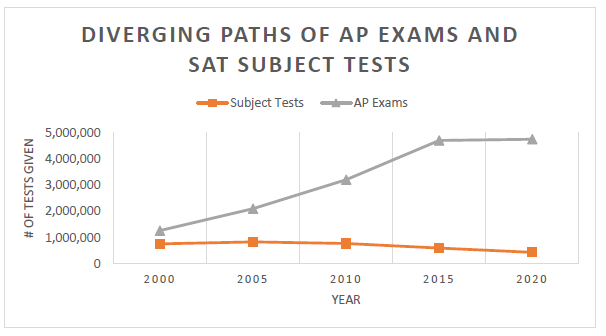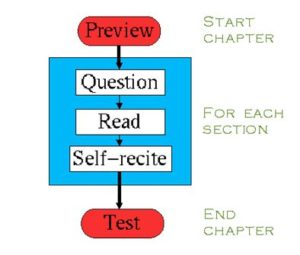***This post reflects recently announced news and will be updated as more information becomes available.***
Today, College Board announced that it is eliminating the SAT Subject Test program. At Sentia, we had our suspicions that this change might be imminent; in the past several days our students have had difficulty registering for these exams on College Board’s website. In a closed webinar scheduled for today, we anticipate that the College Board CEO will deliver more details on the change.
Additionally, the Essay section of the SAT will be eliminated. This change will be less profound for our students as most colleges have de-emphasized the importance of the Writing sections of both the ACT and SAT. Indeed, we anticipate that ACT will follow suit and likely eliminate their essay component in the coming 18 months.
SAT Subject Tests have long been an important component of many of Sentia’s students’ application portfolios. While their demise – and the sudden rollout of these changes – will be distressing to some students, there remain several other means by which students who aspire to attend competitive colleges can stand out.
SAT and ACT scores will begin to hold more weight in the admissions process. With exceptional tutoring and sufficient tutorial planning, this change will allow our students to spend their preparation time focusing on one exam, rather than splitting time in the spring of Junior year between the ACT or SAT and two to three Subject Tests.
Grades, of course, become even more important when other components of an application dossier are eliminated. For most students, that means that judicious and appropriate academic support is more important than ever. Our teachers and academic mentors are well-equipped to ethically and efficiently ensure Sentia’s students are fully prepared to excel in their assessments – quizzes, exams, papers, projects, and take-home tests.
What other ways can students stand out? At Sentia, we have long taken an approach that emphasizes academic mentorship, not just tutoring. After all, our motto is: At Sentia, we don’t just tutor; we’ll be with you every step of the way™. Our students work with their Sentia mentors to perform independent research papers ready for peer review, build inventions that win science competitions, start volunteer programs that transform lives, and learn curricula that far surpasses what’s offered at their schools.
FAQs:
So, I can’t take Subject Tests?
Right. All Subject Tests (with the exception of the May and June 2021 administrations for international students) have been canceled. Students in the U.S. who registered for the May and/or June 2021 Subject Tests will automatically receive a refund. If you’d like to arrange for your fee to be credited towards a future SAT administration, you can contact College Board Customer Service at +1 (212) 713-7789 or sat@info.collegeboard.org.
My dream school still says it highly recommends two Subject Tests. Wait, Georgetown still says it wants three!
Believe it or not, our friends at admissions offices at top colleges weren’t all given a heads up on this change. Students in the class of 2022 are likely to receive confusing information for a while. Will the tests you’ve already taken this year be evaluated as part of the admissions process? How about that Bio score from freshman year? The short answer is: we don’t know yet. Your scores may still be a part of your application or schools may go “test blind” on Subject Tests (meaning they will not look at them, even if submitted).
My child is homeschooled. Help!
Our homeschooled students who work with Sentia academic mentors and tutors will likely not welcome this news. SAT Subject Tests have long been a way for homeschooled students to stand out and demonstrate a wide range of deep knowledge. If your child is homeschooled, contact us so we can collaborate on a plan to ensure your child remains competitive in the admissions processes at top colleges and universities.
My child goes to school in the United States and is applying to Oxford and Cambridge. What do I do?
Many students applying to schools abroad have used Subject Tests to meet application requirements. Some schools, such as Cambridge and the University of Edinburgh, have long preferred AP exams to demonstrate knowledge. We anticipate that AP exams will become even more important – and perhaps required – in these admissions processes. If you aren’t currently planning to take AP exams, contact Sentia. We will likely need to revise your strategy.
My school doesn’t offer AP exams though. What do I do?
College Board’s elimination of the SAT Subject Tests will allow College Board to assign greater resources to its Common Core planning and thus its AP curriculum. For students whose schools do not offer most – or any – AP exams, this change is challenging. We regularly assist our students in registering for AP exams not offered at their schools as well as mentorship to supplement their in-class learning with the material necessary to excel on those exams. We anticipate that in the absence of Subject Tests, greater emphasis will be placed on finding ways for U.S. students to take AP exams. At Sentia, we are committed to working closely with our students to ensure AP exam access and comprehensive preparation. The deadline to register for a May exam has been pushed back to March 12th. Please contact us ASAP so we can help outline a plan for any student who would like to pivot from Subject Tests to AP exams.
AP exams have, in fact, been on the rise as Subject Tests have become less widely used. We’ve seen this trend strengthen over the past 20 years. Take a look for yourself:

This focus on AP exams is the most notable change, perhaps more so than the elimination of a test that only the most competitive students completed. College Board will create (and, yes, sell) more AP exams than ever before. These exams will likely become vastly more important in the college admissions process and yet they are not offered at many high schools throughout the United States or globally. Our students who attend elite boarding and day schools that do not operate on the Common Core curriculum will need to find new and creative ways to demonstrate their knowledge.
Do I need to take the SAT Essay if I’m signed up for the essay component? Should I skip the essay part?
We do not anticipate the essay component will be a relevant factor in admissions decisions going forward. If you’d like to adjust your reservation to SAT without Essay, you should contact College Board to do so.
Rest assured that we will work collaboratively with your family to ensure this testing disruption does not leave your child at a disadvantage. At Sentia, we remain as committed as ever to assisting our students and families in navigating the dynamic and ever-changing world of learning and testing. Please don’t hesitate to reach out with questions or concerns; we welcome the opportunity to provide your family with the individualized, professional guidance and support you’ll need in the wake of this change.

